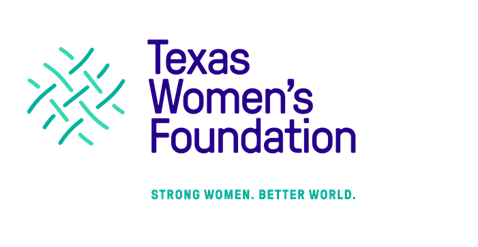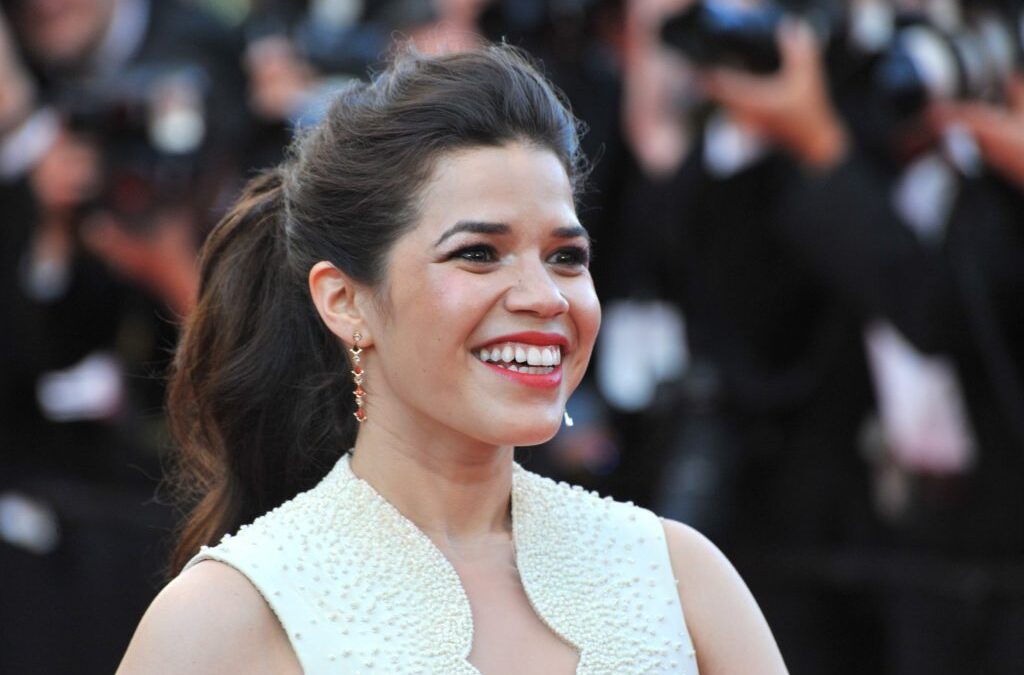Via: Local Profile
By:
Texas Women’s Foundation is a leading driver of meaningful social and economic change for women, girls, and families in Texas. Over the past 34 years, they have awarded $46.6 million in grants. The foundation is one of the largest women’s funds in the world, and on Tuesday, they hosted their 35th annual luncheon—online.
The luncheon was co-chaired by Bonnie Clinton, of Toyota and Cynt Marshall, CEO of the Dallas Mavericks, with Roslyn Dawson Thompson and Shonn Brown of Texas Women’s Foundation. There were virtual swag bags from the Dallas Mavericks, Toyota and TWF, a virtual photo booth, meeting rooms for networking, and more, but the highlight was a moderated discussion with America Fererra.
America Ferrera is an actress, director, producer, activist, author, entrepreneur, and much more. She produced and starred in the NBC workplace comedy Superstore. She also produced and directed episodes of Netflix’s new Latinx dramedy Gentefied.
In 2018, she released her New York Times best-seller American Like Me, a curated anthology of essays about “living between cultures” by Lin-Manuel Miranda, Roxane Gay, Michelle Kwan, Padma Lakshmi, and more.
Ferrera says that her childhood and her upbringing were defined by her dual heritage, both Honderan and American, and that throughout her life and career, she felt alone in her life experiences, often the only person like her in the room.
“I didn’t see my experience reflected back at me in culture,” she says.
Ferrera’s career has been based around fixing that by empowering women and minorities in culture. Here are five takeaways from her keynote speech on the importance of diversity, female empowerment, and finding success while being the only person like her in the room:
The need to be seen
“I grew up being inspired by and motivated by and a fan of culture that I aspired to, but essentially, that I was invisible to. That’s a complicated place to be. To be taught that this is what is celebrated, to be told that anything is possible in this country but to feel that visibility is not there for you.
“My entire career and life as an adult has been about wanting to create more visibility and representation for young people like myself who are out there and don’t know what’s possible and are living isolated with the effects of not being visible.”
Your identity is your superpower, not an obstacle
“That perspective [women have] of needing to strip away parts of ourselves to fit into something that’s dominant is the very ideology that holds us back and confines us and keeps us from shifting the culture … it’s a culture of not seeing yourself, feeling you need to conform, robbing the culture of what your unique experiences are.
“My richness of culture and richness of experiences is a gift is a thing to uplift every room I walk into. But we begin to think of it as an obstacle. The texture of my hair is an obstacle to my career, I have to talk a certain way, dress a certain way, I have to like certain things, let assumptions go unchallenged to get access to those rooms.
“But it only matters that I can be in those rooms if I can be myself when I’m there.”
Get comfortable with uncomfortable situations
“No one is beyond becoming a part of the solution. Since I was 17 and began my professional career, I’ve always had to be in conversation with people who saw things differently than me. There was no one on set who came from my background who understood why a certain line, a certain piece of clothing didn’t feel good or right.
“I had to learn to have conversations with people in a way that invited them into being a part of the solution. I had to. A lot of women and women of color have to assume that role when they get access to powerful spaces. Co conversations are uncomfortable at times. The burden falls on a 17-year-old Latina girl on her first job to say, ‘This doesn’t feel right, can we talk about a solution?’”
Sisterhood is powerful
“When Harvey Weistein broke, it was awful and traumatizing for so many to have to acknowledge that dark truth and reality but what a moment like that allowed for was for women in our industry to not be able to look away and sit in their own pai because it was so obvious that things had to change.
“The first thing that changed was how women were being with each other. In my industry, women are very isolated from one another. You are so often the only one in the room. You’re trained to think of other women as competitors, not partners, not sisters in arms.
“For women in all professions in my industry, women in camera, agents, lawyers, actors, producers, we were so isolated. Proximity on its own is transformational. To bring women into a room who had only heard of each other or thought of each other as competition—but something connected us transcending all those labels that kept us from having friendship with each other.
It’s so powerful to say, ‘This is bigger than any one of us, what are you going to do to fix it?’ To feel seen, in community with people who understand your experience—it’s a true joy and one we aren’t afforded often. Most of us don’t even know we’re hungry for it until we get it.”
Talent is universal; opportunity is not
We have to work to change one person’s life. I think of all the times in my life where one person, one initiative, one afterschool program, one scholarship changed the course of my life. …
How we think about inclusivity [needs to change.] It needs to be not just something good for someone else, but something that’s good for me. When you are empowered, I am empowered, when you are safer, I am safer.
“Our interconnectedness is not just about what’s good for them, but all of us, for me. It’s going to come back and benefit my community, my children, the bigger good in every sense. You have to invest in people for your greater good to come to fruition. See it not as charity but an opportunity.”
For more from Texas Women’s Foundation and to donate, visit their website.

